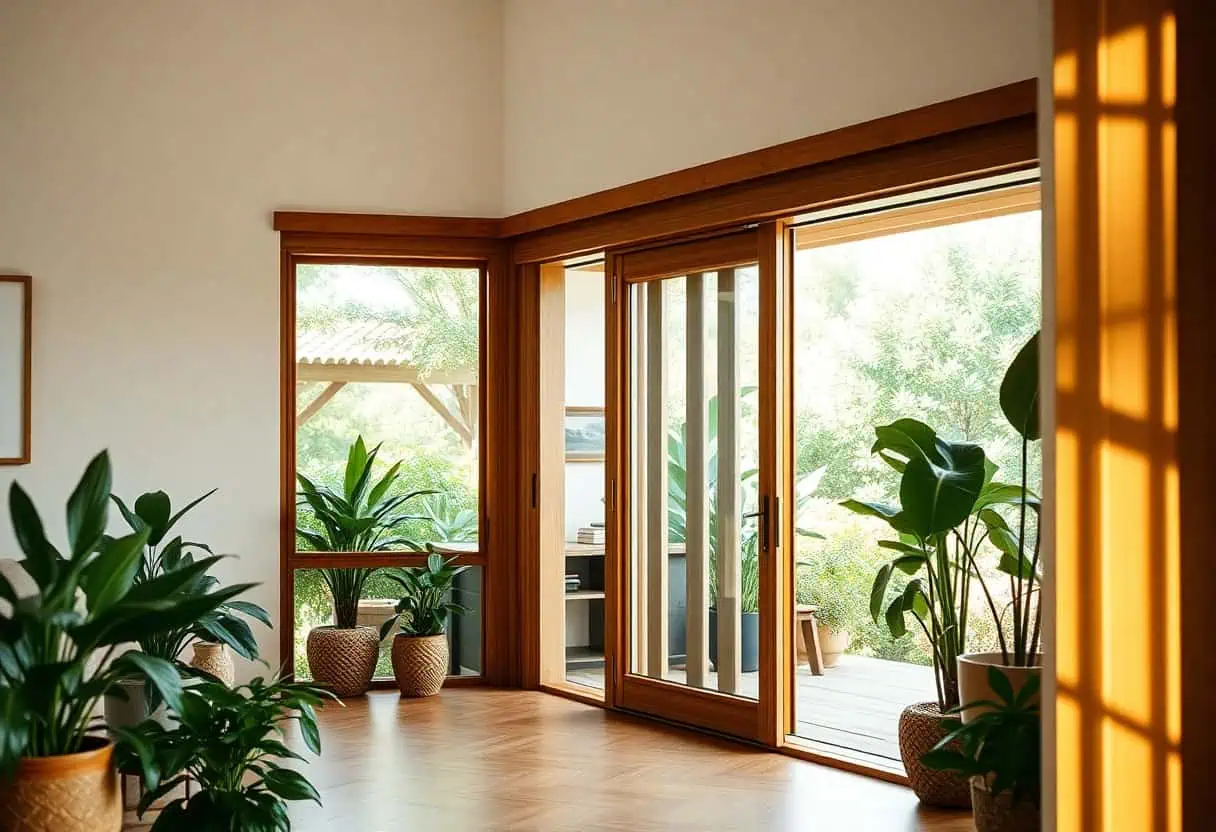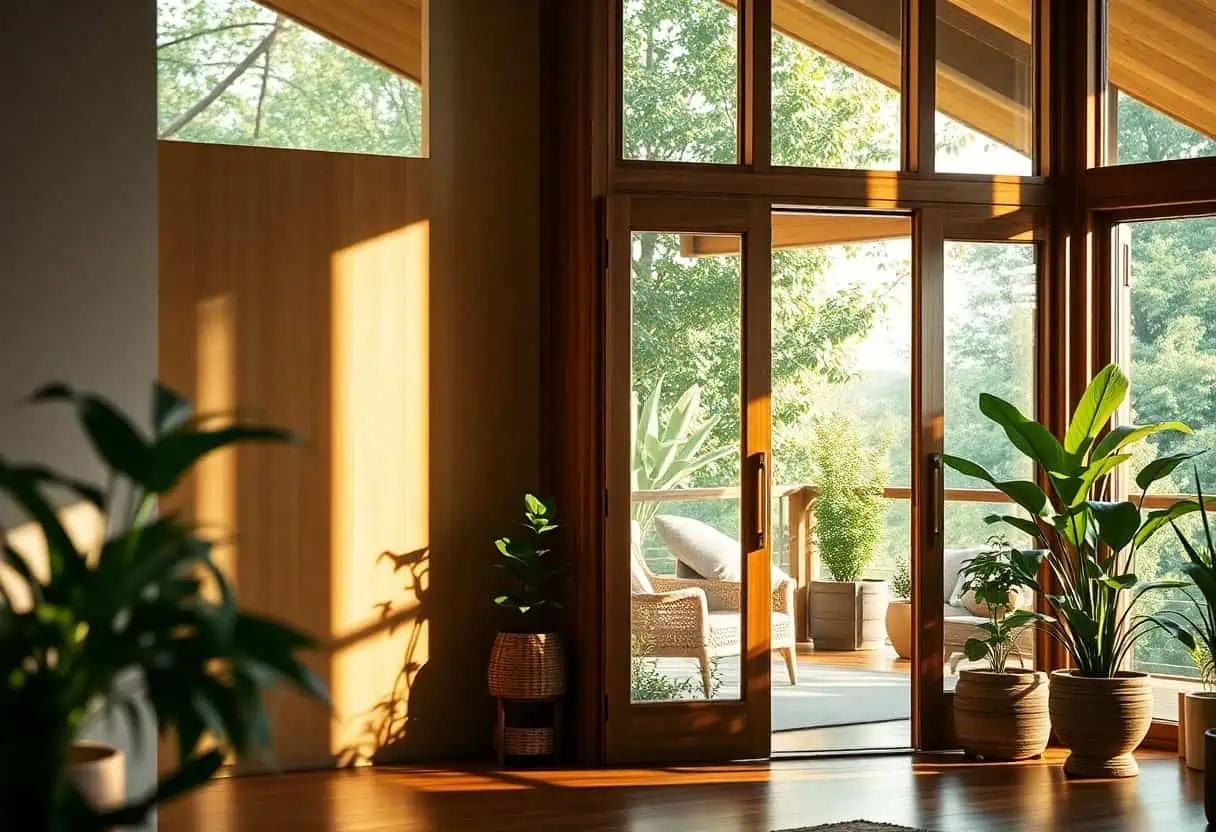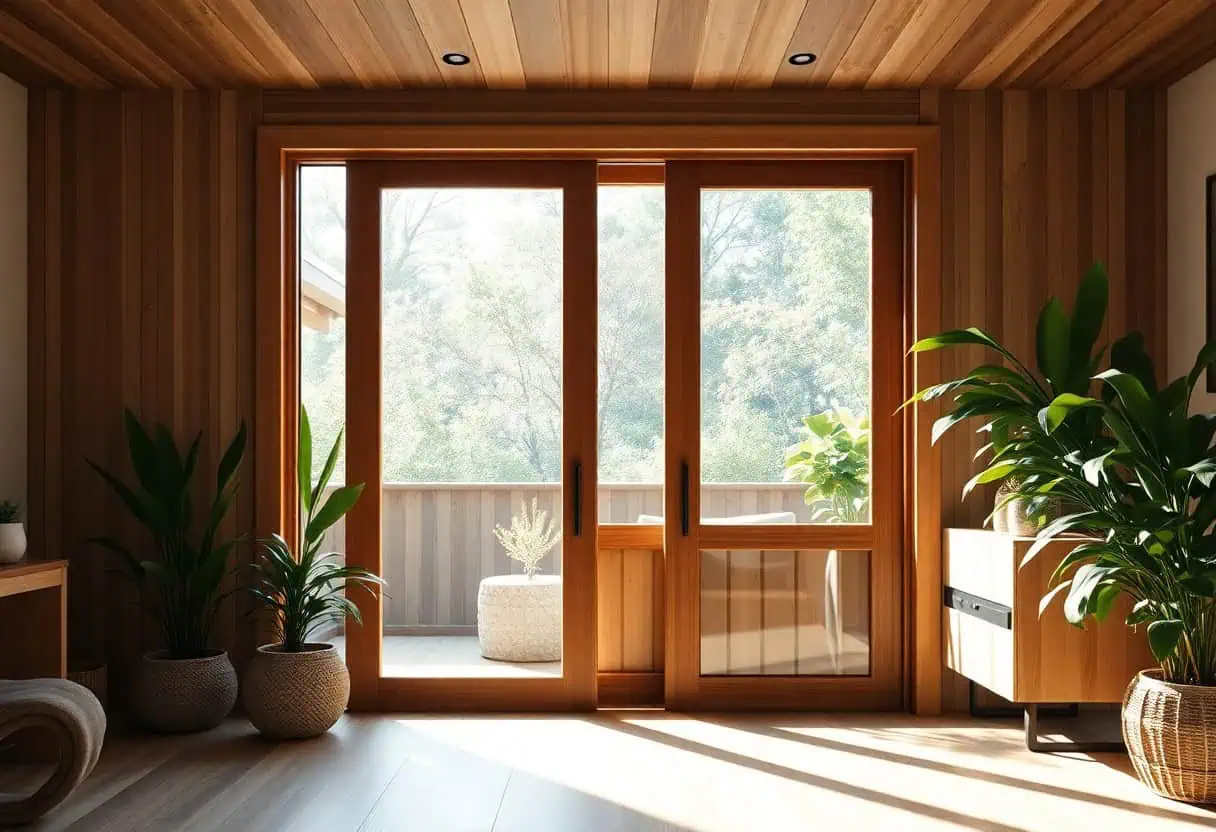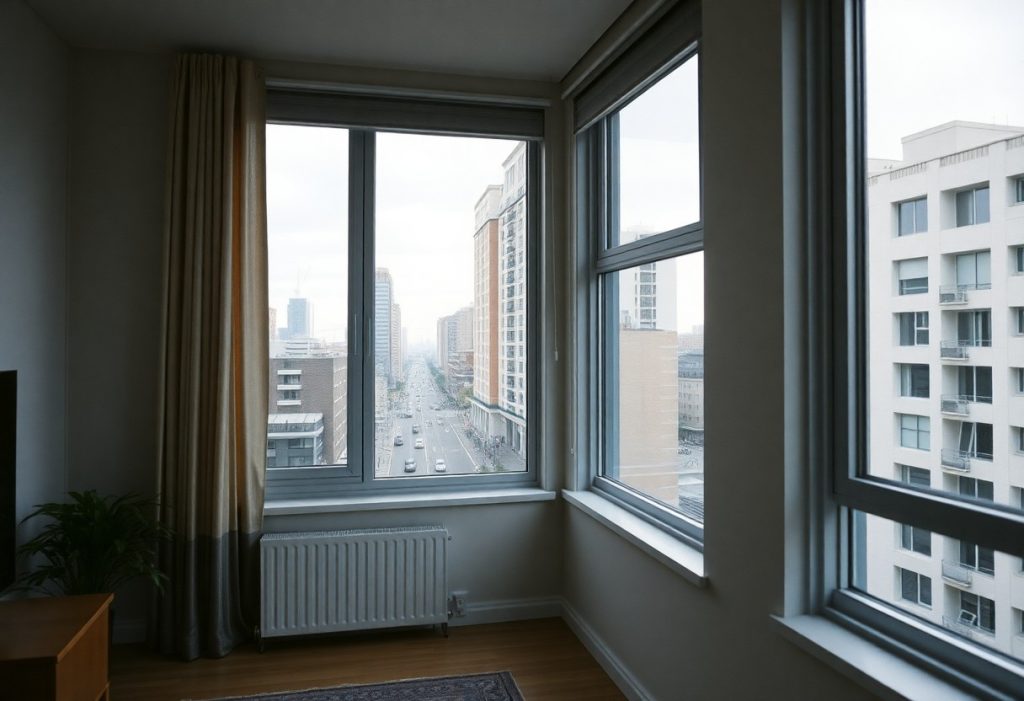Sustainable living starts with the materials you choose for your home, and timber sliding doors can be both beautiful and eco-friendly. When identifying treatments for your timber, opting for bio-based wood treatments not only enhances the aesthetic appeal but also contributes positively to the environment. These treatments minimise harmful chemicals and promote longevity, ensuring your doors remain functional and attractive over time. By choosing wisely, you can align your home improvement projects with your sustainability goals, creating a healthier living space for you and future generations.

Understanding Timber Sliding Doors
As homeowners increasingly seek to combine aesthetics with functionality, timber sliding doors have emerged as a popular option. These versatile doors not only enhance the charm of your living space but also contribute to a sustainable lifestyle. By choosing eco-friendly options and treatments, you can ensure that your timber doors are in line with Sustainability | Sustainable Timber Windows & Doors, allowing you to enjoy both beauty and responsibility in your home environment.
Timber sliding doors are particularly valued for their ability to seamlessly connect indoor and outdoor spaces, offering expansive views and an abundance of natural light. This connection enhances your living experience and maximises space utilisation, making it an ideal choice for modern homes that prioritise open concepts and fluidity in design.
Benefits of Timber Sliding Doors
With timber sliding doors, you can enjoy numerous benefits that contribute to both the functionality and sustainability of your home. These doors are energy-efficient and can significantly reduce heating costs as they effectively minimise drafts when properly installed. Additionally, the natural insulating properties of wood help maintain a comfortable temperature inside your living areas.
Moreover, timber sliding doors are designed to provide easy access to your outdoor environment, which encourages outdoor living and entertaining. This access can lead to improved well-being, as you spend more time in nature, creating a healthier lifestyle overall. Coupled with the right bio-based wood treatments, you ensure a longer lifespan for these doors, rendering them a truly sustainable option.
Design Options and Styles
Between the various design options available for timber sliding doors, you can easily find styles that fit your home’s architecture and your personal taste. Whether you prefer a classic look or a more contemporary aesthetic, timber doors can be tailored to your specific requirements. You have the flexibility to choose from different wood species, finishes, and hardware options, allowing you to create a unique focal point in your home. The ability to customise these elements means that you can achieve a harmonious blend with your existing décor.
This extensive range of choices ensures that when you opt for timber sliding doors, you are not limited to a one-size-fits-all solution. You can select from minimalist designs that emphasise clean lines and simplicity to more ornate styles that highlight intricate details and craftsmanship. Each option can reflect your individuality while maintaining the robustness and natural beauty of timber, making it a practical yet stylish addition to your home.

Importance of Bio-Based Wood Treatments
Some of the most pressing concerns within the build environment today revolve around sustainability and the longevity of materials used in construction. When choosing treatments for your timber sliding doors, opting for bio-based wood treatments offers a number of advantages. These treatments are derived from renewable sources, ensuring that your choices help reduce the reliance on fossil fuels and petrochemical materials. Furthermore, using bio-based options can significantly decrease the overall environmental impact of your home, paving the way for a more sustainable future both for you and the planet.
Environmental Impact
Around the world, the construction industry is a major contributor to environmental degradation, often through the use of synthetic chemical treatments that can emit harmful pollutants during application and over time. By choosing bio-based wood treatments for your sliding doors, you contribute to a reduction in volatile organic compounds (VOCs) released into the atmosphere. These natural alternatives typically break down more easily, reducing long-term pollution and helping preserve local ecosystems. This choice not only aligns with sustainable practices but also enhances the appeal and value of your home by showcasing a commitment to environmentally friendly living.
Health Considerations
The use of traditional chemical wood treatments can pose significant health risks to you and your family. The dangers associated with exposure to artificial substances can lead to chronic health issues, especially for individuals with sensitivities or pre-existing conditions. In contrast, opting for bio-based treatments can offer a safer alternative, as they generally contain fewer hazardous chemicals, resulting in improved indoor air quality and overall wellbeing. By prioritising health-conscious materials, you make a proactive choice for your living environment.
A key benefit of bio-based wood treatments lies in their enhanced safety profile. Many of these treatments are crafted from natural ingredients such as plant oils and resins, which are less likely to emit harmful fumes. This can be especially important in homes where children or pets are present, as they are often more vulnerable to the effects of toxic substances. By choosing bio-based options, you not only safeguard your own health but also create a healthier atmosphere for all inhabitants, making it a win-win for your family and the planet alike.
Types of Bio-Based Wood Treatments
The selection of appropriate bio-based wood treatments is imperative for maintaining the longevity and sustainability of timber sliding doors. Several options exist, each offering unique benefits tailored to your needs. Below is a simplified table highlighting the primary types of treatments you may consider:
| Type of Treatment | Description |
|---|---|
| Natural Oil Finishes | Enhances the wood grain while providing moisture resistance. |
| Water-Based Sealants | Offers UV protection without strong odours or harmful solvents. |
| Beeswax | A natural option that adds a protective layer while being biodegradable. |
| Plant-Based Stains | Provide colour while being free from synthetic chemicals. |
| Varnishes | Forms a solid protective layer, ideal for high-traffic areas. |
Recognising the right type of bio-based wood treatment can greatly enhance the aesthetic appeal and durability of your timber sliding doors.
Natural Oil Finishes
Across various applications, natural oil finishes have become a popular choice among homeowners seeking eco-friendly options. These finishes, derived from sources such as flaxseed or tung oil, not only enhance the natural beauty of the wood but also penetrate deeply to offer protection against moisture. This allows the timber to breathe, preventing the build-up of moisture that could lead to mould or rot.
Moreover, natural oil finishes provide a warm, lustrous sheen, accentuating the wood grain while offering ease of maintenance. They can be reapplied easily, allowing you to refresh your doors without the need for extensive stripping or sanding, thus prolonging the lifespan of your products. Many users appreciate that, compared to synthetic finishes, these options are less harmful to the environment.
Water-Based Sealants
Wood treatments using water-based sealants have gained traction for their rapid drying times and minimal environmental impact. These sealants create a strong barrier against moisture, UV radiation, and other damaging elements while emitting fewer harmful fumes than solvent-based counterparts. If you’re looking for a finish that is easy to clean up and maintain, water-based options stand out as an excellent choice.
Consequently, you will find that water-based sealants offer not only practicality but also versatility in their application. They can be used on various wood types and are less likely to yellow over time. As a plus, these sealants typically contain fewer volatile organic compounds (VOCs), making them a healthier choice for indoor environments. This means you can enjoy both the beauty and sustainability of your timber sliding doors without compromising on air quality.

Selecting the Right Treatment for Your Home
Unlike many traditional treatments that may contain harmful chemicals, bio-based wood treatments offer a sustainable and eco-friendly alternative for your timber sliding doors. By choosing a product derived from natural sources, you not only enhance the longevity of your doors but also contribute positively to the environment. Furthermore, these treatments often provide excellent protection against rot, insects, and weathering, ensuring that your sliding doors remain both functional and aesthetically pleasing for years to come.
Assessing Climate Conditions
By evaluating the unique climate conditions in your area, you can make informed decisions regarding the appropriate wood treatment for your sliding doors. Different climates present various challenges; for instance, regions with high humidity may require a treatment that offers enhanced moisture resistance, while areas with intense sunlight could benefit from UV protection. Understanding these factors helps you select a product that not only protects your doors from environmental stressors but also complements their natural beauty.
Matching Aesthetics with Functional Needs
Beside the protective qualities, it is vital to consider how the wood treatment will enhance the overall aesthetic of your home. You want a finish that harmonises with your existing décor while serving its purpose effectively. Different treatments can provide varying sheens and colour tones, allowing you to tailor the appearance to your specific taste. Always aim for a solution that satisfies both the aesthetic appeal and the functional requirements of your timber sliding doors.
At this stage, it is wise to explore samples and test how various treatments look and feel on your timber. Consulting with professionals can shed light on how different products interact with your wood type and the anticipated wear and tear over time. Your choice should embody a balance of style and practicality, ensuring that your sliding doors not only look stunning but also withstand the test of time and elements.
Application Techniques for Wood Treatments
Despite the numerous benefits of using bio-based wood treatments for your timber sliding doors, selecting the right application techniques is vital to ensure maximum effectiveness. The preparation and treatment process can significantly impact the longevity and sustainability of your wooden products. For more insights on the innovative materials available for sustainable homes, consider Exploring Eco-Friendly Innovations in Interior Door Materials.
Surface Preparation
On preparing your wooden surface adequately, you’ll ensure a smoother finish and better absorption of the treatment. Start by cleaning the surface to remove any dirt, dust, or old finishes, which could inhibit proper adhesion. Sanding is another critical step, as it creates a suitable texture that helps the treatment penetrate the wood effectively. Ensure you sand in the direction of the grain to avoid scratching the surface, and vacuum away any sanding dust before applying the treatment.
Application Methods and Tips
Behind successful application, choosing the right method can enhance the result while making the process simpler. You can apply bio-based wood treatments using brushes, rollers, or spray equipment, depending on the area you are covering and the finish you desire. Whichever method you choose, work in small sections to maintain control and even coverage. Useful tips include applying multiple thin coats rather than a single thick one for optimal results. Allow adequate drying time between each coat, as this air dries the product while developing the desired look and protection.
- Brush application is suitable for intricate details.
- Rollers can cover large areas more quickly.
- Spray application offers a fine mist finish and even distribution.
Assume that you take the time to apply treatments carefully; it can vastly improve the durability and aesthetic of your timber doors. A thorough understanding of application methods allows you to elevate your skill and achieve a quality finish that complements the environment of your sustainable home.
- Multiple coatings are recommended for deeper penetration.
- Thin layers reduce the risk of drips and runs.
- Choosing the right tools can make application easier.
Assume that you focus on these application methods, and the result will be a more appealing and resilient surface that not only enhances your home’s appearance but also its overall sustainability profile.
Maintenance and Longevity
Not only do timber sliding doors enhance the aesthetic of your sustainable home, but their longevity also hinges on proper maintenance. By selecting eco-friendly wood treatments, such as those highlighted in Hemp Wood: A Comprehensive Guide – Build With Rise, you can protect your doors against the elements while contributing to a greener planet. Regular care will ensure that the doors last for many years, saving you time and resources in the long run. Keeping an eye on the condition of your treatments and addressing any issues promptly will help maintain both functionality and appearance.
Routine Care and Restoration
Beside ensuring a regular cleaning schedule for your timber sliding doors, it’s equally important to conduct thorough inspections for any signs of wear and tear. Use a soft cloth to wipe down the surfaces, avoiding harsh chemicals that could contribute to deterioration. In addition to cleaning, consider applying a protective oil or sealant at least once a year, depending on the level of exposure to sunlight and moisture. This not only rejuvenates the wood but also fortifies it against potential damage from insects and environmental factors.
Signs of Wear and When to Reapply
For your timber sliding doors to maintain their allure and functionality, it’s crucial to be vigilant for signs of wear. If you notice the wood becoming rough to the touch or if the finish appears dull, it’s likely time to reapply your protective treatment. Look out for peeling or flaking; these are indicators that your doors require immediate attention to prevent degradation. Environmental exposure could contribute to more severe issues down the line if not promptly addressed.
In addition, keep an eye on any discolouration or water stains, as these could signify moisture infiltration that might compromise the integrity of the wood. If you fail to reapply the treatment when needed, the doors could become prone to serious issues like mould or rot, which can be expensive and laborious to fix. By attending to these warning signs and acting swiftly, you can ensure that your timber sliding doors remain not just functional but spectacularly beautiful throughout their lifespan.
Summing up
Summing up, selecting bio-based wood treatments for your timber sliding doors is not just about aesthetics but also about committing to sustainability. You have a variety of eco-friendly options, such as natural oils, waxes, and water-based finishes, which not only enhance the beauty of your wood but also offer protection against the elements. By choosing these treatments, you’re contributing to a more sustainable building practice, reducing your environmental impact, and ensuring the longevity of your timber features.
Your choices in materials and treatments reflect your values and aspirations for your sustainable home. By opting for bio-based wood treatments, you invest in quality that supports not only your living environment but also the planet. Take the time to research and select products that align with your commitment to sustainability, ensuring that your timber sliding doors not only function beautifully but also tell a story of responsible sourcing and care for the environment.
FAQ
Q: What are timber sliding doors?
A: Timber sliding doors are doors made from wood that slide open and closed rather than swinging on hinges. They are popular for creating wide openings to outdoor spaces, allowing for enhanced natural light and seamless transitions between indoor and outdoor areas.
Q: Why should I consider bio-based wood treatments for my timber sliding doors?
A: Bio-based wood treatments are eco-friendly options that use natural plant-derived substances to protect and preserve wood. These treatments help minimise environmental impact, promote sustainability, and can enhance the longevity and appearance of your timber sliding doors.
Q: What types of bio-based wood treatments are available?
A: There are several types of bio-based wood treatments available, including natural oils (e.g., linseed oil, teak oil), waxes, and water-based stains. These treatments can repel moisture, resist mould and pests, and provide UV protection, all while being less harmful to the environment compared to traditional chemical treatments.
Q: How do I properly maintain bio-based treatments on timber sliding doors?
A: To maintain bio-based treatments, clean the surface of your timber sliding doors regularly with mild soap and water. Reapply the wood treatment as recommended by the manufacturer, usually every year or two, depending on exposure to the elements. Checking for signs of wear or damage will also help protect the wood surface.
Q: Are bio-based wood treatments suitable for all wood types used in sliding doors?
A: Most bio-based wood treatments are suitable for a variety of wood types commonly used in sliding doors, such as oak, pine, and cedar. However, it’s advisable to verify compatibility with the specific wood species and treatment product by consulting with the manufacturer or retailer.
Q: Can using bio-based treatments affect the appearance of the sliding doors?
A: Yes, the application of bio-based treatments can enhance the natural beauty of the wood by deepening its colour and grain. However, it is important to choose a product that complements the desired finish, as some treatments may impart a sheen or change the wood’s tone slightly.
Q: What should I consider when selecting timber sliding doors for sustainability?
A: When choosing timber sliding doors for sustainability, consider the source of the wood (look for certified sustainably sourced timber), the use of bio-based treatments, and energy-efficient designs. Additionally, ensuring that the doors provide good thermal insulation and are manufactured with minimal environmental impact is important.









